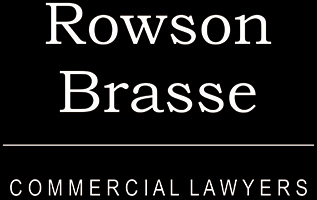Restraint of Trade
Is your Restraint of Trade Reasonable?
As an employer, on termination of an employee and without the benefit of a well drafted restraint of trade clause, you are at risk of the employee:
- setting up a directly competing business in the same locality;
- approaching your customers and seek orders from them;
- using for their own purposes any information which the carried in their heads regarding the identity of the employers your customers or contacts;
- using for their own purposes any information they carried in their heads regarding your product requirements;
- using the information concerning pricing policies provided information was acquired honestly in the ordinary course of their employment – excluding the employee deliberately memorising lists of names for the purposes of their own business
As an employer, your only protection is that the departing employee cannot steal any of your document which are confidential and which you have access in the course of their employment. This prohibition extends to the copying of confidential information: Hartleys v Martin (2002) VCS 301
The restraint of trade clause in your contract employment can protect you from the above provided always the restraint of trade clause is in all the circumstances reasonable. The reasonableness of the restraint of trade clause is critical because as a matter of public policy the law recognises that a man should be free to use this skill and experience to the best advantage and should not be put in a position of a slave: Attwood v Lamont (1920) 3KB 571. A restraint of trade clause is in that respect an exception.
The reasonableness of the restraint of trade clause will rebut the presumption that the clause is prima facie void as boing contrary to public policy. The court said in Drake Personnel Ltd v Beddison [1979] VR 13:
Reasonableness is a question of law to be determined by the Court on the special circumstances of the case, and the onus of proving the special circumstances justifying the restriction as reasonable between the parties lies on the person alleging it to be so. “Trade secrets”, such as secret processes of manufacture, may be protected, and an employer is entitled not to have his old customers by solicitation or otherwise enticed away from him, but otherwise freedom in his trade or business from all competition per se is not his right; however lucrative such a freedom might be to him he is not entitled to be protected against competition. General skill and knowledge which a person of ability necessarily acquires in his employment is not a trade secret of his employer, and such skill and knowledge are not things in which an employer can claim any proprietary interest. “A man’s aptitudes, his skill, his dexterity, his manual or mental ability … ought not to be relinquished by a servant; they are not his master’s property…
The reasonableness of the restraint is to be assessed as at the date of the contract, however, subsequent development can come to the aid of this assessment. What restraints would then be reasonable:
- a restraint for the purpose of maintaining and protecting confidential information pertaining to say new products, costing and pricing, customers and customer’s list;
- a non-solicitation restraint in that the employer has an interest in its customers connection;
The reasonableness of the restraint depends also on the reasonableness of the duration of the restraint. For instance, it will be reasonable for a non-solicitation restraint to be for a period for which a reasonably competent replacement employee to show his or effectiveness in dealing with customers and establishing a rapport with the customers.
In addition to contractual restraints as am employer you may rely on sections 181 and 182 of the Corporations Act which prohibit employees from improperly using their positions, or from using information obtained because they are employees again and advantage for themselves or others or to cause a detriment to the employer. Though statuary obligations have been said to reflect officially duty of loyalty, fidelity and good faith, extending an obligation to treat confidential information of such and not to disclose it to competitors: Griffiths & Beerens Pty v Duugan (2008) 66 ACSR 472 and Spotless Group Limited v Blanco Catering Pty Ltd [2011] FCA 979.
Please contact Jean F Brasse for further advice on restraining clauses.

0 comments